Loud Explosion Terrifies People Near Tehran As IRGC Refers To 'Rocket Test'
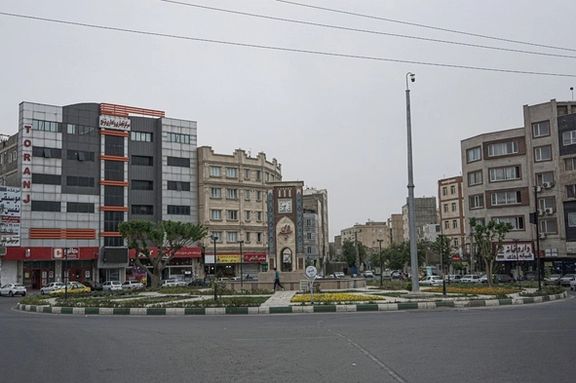
The sound of a loud explosion heard in a town near Tehran has caused a stir among Iranian internet users, with reports of terrified people out in the streets.

The sound of a loud explosion heard in a town near Tehran has caused a stir among Iranian internet users, with reports of terrified people out in the streets.
The loud blast was first reported on Wednesday afternoon by the residents of the town of Shahr-e Qods (formerly known as Ghal‘eh Hasan Khan) west of Tehran.
It was labeled as an incoming missile explosion by twitter users which was rejected by a security official from the governor's office of the Tehran province.
The rumors prompted Iran’s Revolutionary Guards to issue a statement on the incident.
The public relations office of one of IRGC’s local bases announced that the explosion was the result of a “controlled rocket launch” that took place during a “regular training session” in the base.
The statement urged people to stay calm and no to trust the news from the social media.
There are no independent reports yet about the source of the loud explosion. The area is mainly residential and a missile or rocket test by the military seems strange. There are no known large military bases in the area suitable for a missile test.
Sounds of explosions lead to speculations of possible foreign attack, given several mysterious sabotage acts at Iran's well-defended nuclear and other sensitve targets since July 2020.
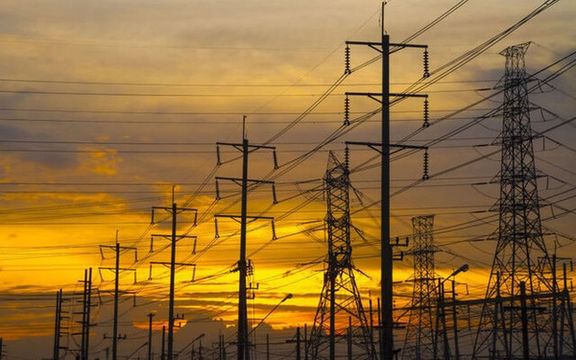
The Iraqi government says several power plants in the country have stopped operations due to a sharp decrease in natural gas imports from Iran.
Iraqi Electricity Ministry spokesman Ahmed Moussa said on Tuesday the reduction of gas supplies by Iran has caused widespread electricity shortages especially in central and southern parts of the country.
According to Moussa, Iran has reduced its gas exports to Iraq from 50 million cubic meters per day to about 8.5 million, cutting about 4,000 megawatts from the national grid, which now carries only 13,000 megawatts.
Iraq, which depends on Iran for about one third of its electricity, needs about 35,000 megawatts of power during peak winter demand, with only about one-third available now.
The reason for the drop is attributed to billions of dollars of unpaid bills by Baghdad, due to US banking sanctions against Iran. But the drop in Iran’s gas supplies may also be the result of a recent accident in a pipeline in Iran that shut down one of the units of South Pars gas field, reducing at least 15 million cubic meters of daily production, which Iran desperately needs.
Last winter, Iran experienced large power cuts in major cities. Protests broke out on a few occasions. When authorities started burning mazut, a dirty unrefined fuel to generate electricity, it led to heavy pollution in cities adding to the popular anger.
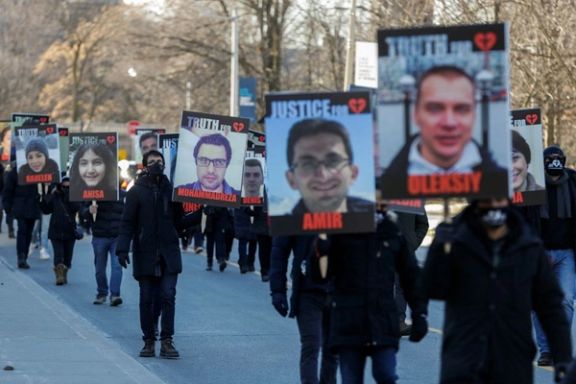
Hackers on Tuesday interrupted a video briefing by lawyers for relatives of those who died when Iran shot down a Ukrainian airliner, playing clips of loud music and showing sometimes violent images for more than two minutes.
The lawyers ended the Zoom call and restarted it without further incident. The briefing was held after a Canadian court this week awarded C$107 million ($84 million) to the families of six people who died when Iranian Revolutionary Guards downed the jet near Tehran two years ago.
The interference started shortly after Mark Arnold, one of the lawyers, said "if anybody from the Islamic Republic of Iran is on this call ... we're coming after your assets."
Images of a doll with sharp teeth and a dog with shining eyes then popped up on the screen, followed by a clip of a man singing a rap song with obscene lyrics and then repeated images of a man running towards a camera and pretending to kick it.
"I cannot speculate on who hijacked the call, but it was indeed interference," Jonah Arnold, another lawyer on the call, said by email when asked whether he thought Iranian actors were responsible.
No one has claimed responsibility. The lawyers had sent out a news release to the media with the dial-in details and password for the call.
Iran shot down the airliner in January 2020. All 176 people onboard were killed, including 55 Canadian citizens and 30 permanent residents.
The six family members awarded compensation by the court had filed a civil lawsuit against Iran and other officials they believe were to blame for the incident.
Report by Reuters
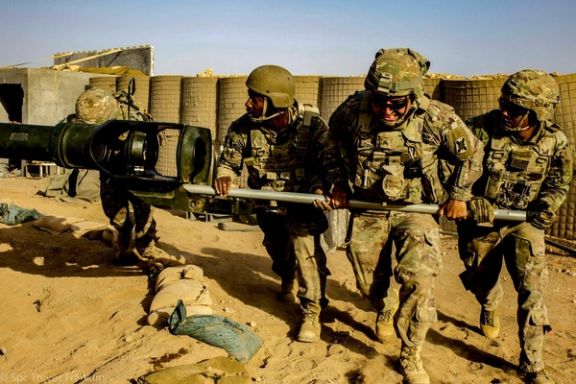
Attacks on American troops stationed in Iraq and Syria in recent days, attributed to Iran-backed militia forces, came as the nuclear talks in Vienna were making some progress.
US officials in recent weeks had warned that they expected more attacks against US forces in Iraq and Syria, in part because of the second anniversary of the killing of top Iranian general Qasem Soleimani.
Soleimani who was Iran’s top military and intelligence operator in the Middle East, organizing anti-American and anti-Israeli militant groups, was killed by a targeted US drone strike on January 3, 2020, directly ordered by former US president Donald Trump.
Two explosive-laden drones were shot down on Tuesday by Iraq's air defenses as they approached the Ain al-Asad air base, which hosts US forces, west of Baghdad, an official of the US-led international military coalition said.
A similar attack was foiled on Monday, when Iraqi air defenses downed two drones as they approached a base hosting US forces near Baghdad's international airport.
Separately, another coalition official told Reuters that the coalition had carried out strikes against an "imminent threat" after they saw several rocket launch sites near the Green Village in Syria.
While this official did not say which country in the coalition carried out the strikes or who was responsible for the launch sites, Iranian-backed militia groups have occasionally targeted US forces in both Iraq and Syria.
In Washington, Pentagon spokesman John Kirby refused to say that the latest attacks were tied to Iran, but said they follow a pattern of attacks that were carried out by Iranian networks in the past.
"I'm not in a position now to get into specific attribution. That said, we continue to see threats against our forces in Iraq and Syria by militia groups that are backed by Iran," Kirby told reporters.
He also said the coalition strikes in Syria were not carried out by aircraft but did not provide more details on the threat.
The attacks came as nuclear talks continued with Iran in Vienna that seem to be making some progress. Critics of the talks to restore the 2015 nuclear agreement known as JCPOA say that even if negotiations prove successful they would not impact Iran's agressive behavior in the region and its network of militant proxies.
Iranian threats of revenge and retribution increased in the past one week as Soleimani’s death anniversary approached. Both Iran’s Supreme Leader Ali Khamenei and hardliner president Ebrahim Raisi warned that those involved in the Soleimani’s killing must be held responsible.
"If Trump and (former Secretary of State Mike) Pompeo are not tried in a fair court for the criminal act of assassinating General Soleimani, Muslims will take our martyr's revenge," Raisi said in a televised speech on Monday.
The United States is leading the international military coalition fighting Islamic State militants in Iraq and in Syria.
There are roughly 900 U.S. troops in Syria and another 2,500 in Iraq.
With reporting by Reuters
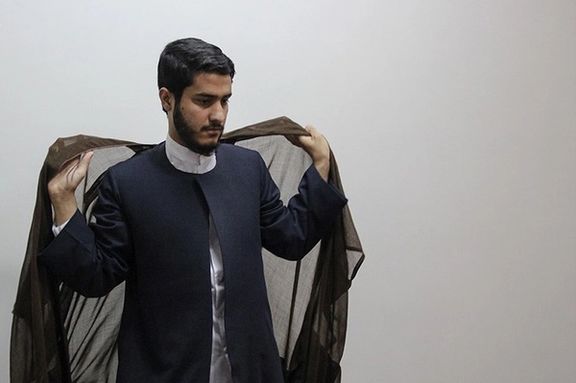
For fear of being insulted in public, clerics and seminary students are avoiding their usual garb, a senior Iranian cleric has said.
Mohammad Taghi Fazel Meybodi, a member of the Assembly of the Qom Seminary Scholars and Researchers, said in an interview published on Tuesday that the people in Iran have a negative view of the clergy, and blame them for the current hardships they experience, including high prices and corruption.
"Many clerics who want to go out to do something or go shopping…try not to go in their clerical clothes, because people swear or curse at them" he said.
He added that people don’t trust the clerics anymore because most of those they know work in the government or military organizations.
Many Shiite clerics also work as the propaganda agents of the clerical regime in state media, including the monopolized state television, where they regularly appear in talk shows to instill religious values or defend government policies. Some are also rich, with opulent houses and bodyguards.
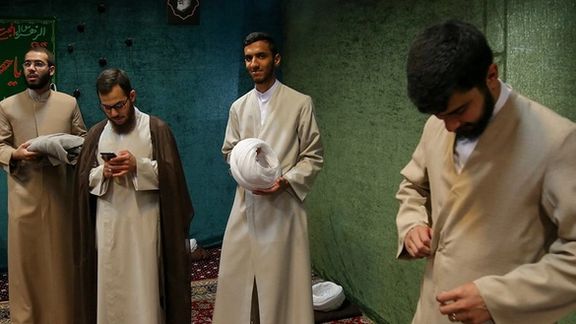
He admitted that these types of clerics are paid handsome salaries, “but these are not all the clerics”, he stressed, noting that there are many who live on meager stipends paid by the seminaries.
The Qom seminary has become too politicized, Fazel Meybodi added, describing it as the main reason behind the unpopularity of the clergy in the country. The financial dependence of most seminaries on lavish government handouts has made the clergy obedient, while decades earlier people saw clerics as an independent force in society.
“The economy of our society is sick, and unfortunately every government that comes to power makes promises that remain unfulfilled” he said, highlighting that most of officials who run the country and hold important positions are from the clergy, and this has led to people’s negative views of them.
Last week, a woman in the religious city of Qom was arrested for arguing with a cleric and trampling on his turban after he and another cleric warned her over her hijab.
Earlier in the week, strong reactions to comments by a cleric in Iran highlighted the vast gap between the official ideology and the people's notion of a desirable lifestyle.
Iranian media on Saturday quoted Tehran's Friday Prayers Imam Kazem Sedighi as having branded family planning and dog walkingas examples of "promiscuity and fighting Allah."
Meanwhile, trending the hashtag #LetUsTalk, hundreds of Iranian social media users protested against compulsory hijab and the ideology the government imposes on them.
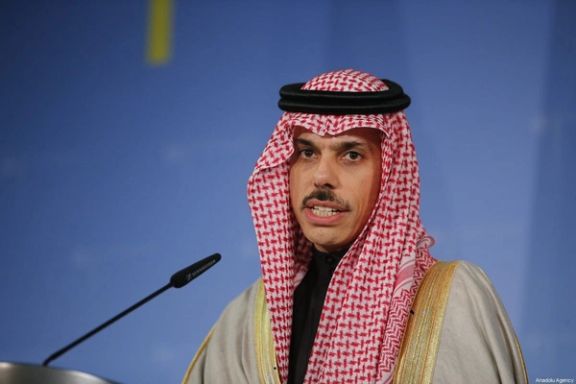
Saudi Arabia’s Foreign Minister Prince Faisal bin Farhan Al Saud has expressed concerns over “transgressions by Iran”, particularly in its nuclear program.
According to al-Arabiya, the visiting Saudi diplomat made the remarks at a joint press conference with Greek Foreign Minister Nikos Dendias in Athens on Tuesday.
Prince Farhan pointed out that Iran's activities don’t match with what Tehran declares about “the peaceful nature” of its nuclear program.
He reiterated Saudi Arabia’s support for international efforts to prevent Iran from acquiring nuclear weapons, as Tehran and world powers are negotiating over the revival of their nuclear agreement in Vienna.
Bin-Farhan said that he explained to his Greek counterpart "the Houthi group's threat to international navigation, the latest example of which was the hijacking of a civilian shipat sea."
The Saudi minister made similar comments after his meeting with his Jordanian counterpart Ayman al-Safadi in Amman on Monday, stressing “the importance of intensifying efforts to prevent Iran from acquiring nuclear weapons and make the Middle East free of weapons of mass destruction.”
Riyadh and Tehran held talks last year to reduce tensions with the aim of restoring diplomatic ties broken since January 2016. So far, the talks have been exploratory with no tangible results.